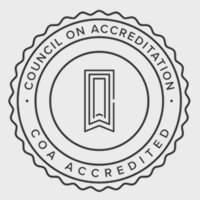Our need for safety is paramount for our mental well-being. It is the basic need to be fulfilled in order to make positive change and growth. In today’s world, feeling safe is harder than before. Social media and bombastic news coverage enter our homes through electronic devices, sharing news fraught with fear. Gun violence is increasing and enters spaces considered safe in the past. A worldwide pandemic forced us indoors and isolated us for fear of contracting the disease. Our children are feeling unsafe in so many ways, we need to go back to the basics and consider how we can ensure their safety at home and ease their way in the world.
When we hold our children as infants, we share our calm, encourage the release of oxytocin, a hormone sometimes referred to as the “cuddle hormone”. The bond or attachment developed through the release of oxytocin and its resultant physiological changes, encourages safe feelings for the mother and the baby. Our desire for that same feeling continues throughout our lives. We need to feel safe and loved and protected. That has been difficult in the past few years.
Based on the work of Humanistic psychologist Alfred Adler, the Crucial C’s reflect the needs of children to feel safe in order to flourish. The 4 Crucial C’s are connect, capable, count, and courage. You can help provide connection to the children in your life through the act of being present. Being a consistent and predictable force in their life who accepts them unconditionally for who they are is a direct line to providing safety. Showering your child with love and praising their efforts through genuine respect, active listening, and affection provides them with the safety net they need to move forward with confidence and a positive self-image and ensures that they know they count in this world.
Within that supportive relationship, it is also important to provide structure that recognizes boundaries and responds with flexibility to the needs of the child. Without a solid structure to understand the rules and the roles within the family, a child will not grasp their responsibility for safety and may not show the courage to try new things. They need to develop the capability to recognize their abilities and challenges to reach their goals with you providing the safety net in case of a wrong step. To provide that safety net without judgement and with encouragement, you will help your child learn their power to make safe choices and internalize the feeling of personal safety and loving support.
But what about those times when your child is having a hard time feeling safe? The meltdowns and the feelings of fear and hopelessness? Be present. Put down the phone. Turn off the device. Sit with them and really listen to their words without trying to fix and without invalidating them. What are they telling you? What feelings do they express? Are they overwhelmed by the events of the day? Are they feeling disconnected from you, their safe person? Are they feeling threatened by things out of their control – like big events, painful sights, or other people’s behavior?
First find your calm. No one can feel safe if those they look to for that feeling are unsafe. Take five slow long deep breaths together. Listen to them. Reflect their feelings and words back to them to show that you understand and are listening. Share some of your calm. Validate their feelings. Remind them they are safe. Tell them how they are safe. Sit with them and help them regain that internal quiet space. Then begin to rebuild that safety around them through specific and sincere praise and reminders of their strengths and courage. Remind them of the abilities they have. Remind them of how they are connected to you, how they count in the world, how they are capable of great things, and how courageous they are. These Crucial C’s lay the foundation for safely moving into the world with your support. Safe at home and safe in the wider world.
Written by Tina Patterson, MA, LMFT, ClinicTherapist at Tanager Place
Copyright (2022)


